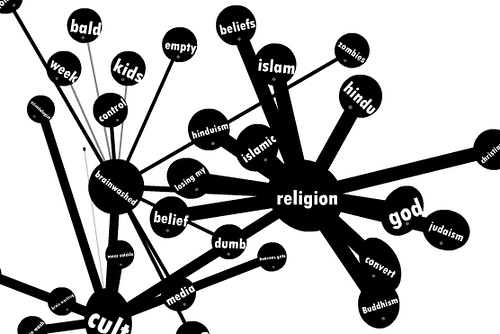I am most grateful to Brian Kennedy for his detailed and insightful reply to my earlier blog Are there infallible facts. I’ve already followed up with the response Empirical vs. Ex Cathedra Solutions. Here is a second follow-up, selecting other points made by Brian, which certainly have taken the discussion beyond the limits of my earlier piece.
Brian pointed out that I had “exposed… that the noun *claims* is (often) subjected to more weight than it can bear”, but he also rightly pointed out that this is quite common in everyday language. He also makes the valuable point that ordinarily words reach over to connected with others, as when the term *claim* is associated with claimants, liabilities, and assets (especially in a legal context), although it is quite acceptable and common to use each of these terms without making explicit reference to any of these. Elsewhere — and more recently — I referred to this as cases where words are part of an associative-net.
 We can, for example, ask others to “free associate” by giving a starter-word only and asking someone to come up with as many words as possible for the next few minutes. In many cases the string of words each person presents during such serial association have significant overlaps. Wittgenstein talked about this phenomenon as terms having a “family resemblance”. It underscores that words or phrases should NOT be viewed in the manner suggested earlier, as independent items — a view proposed, for example, by an earlier Wittgenstein (c.1921, the author of the Tractatus) and also by members of the Vienna Circle (later knows as Logical Positivists), but that words reaches out to others, as it were (see Wittgenstein post-1940).
We can, for example, ask others to “free associate” by giving a starter-word only and asking someone to come up with as many words as possible for the next few minutes. In many cases the string of words each person presents during such serial association have significant overlaps. Wittgenstein talked about this phenomenon as terms having a “family resemblance”. It underscores that words or phrases should NOT be viewed in the manner suggested earlier, as independent items — a view proposed, for example, by an earlier Wittgenstein (c.1921, the author of the Tractatus) and also by members of the Vienna Circle (later knows as Logical Positivists), but that words reaches out to others, as it were (see Wittgenstein post-1940).
For example, we understand that *claim* as used by lawyers and accountants is viewed as something owed (liability) or owned (asset). Furthermore that where there is a claim there is also a claimant, a party making such a claim, whether as an individual or a group of people. Thus there have been two greatly opposed positions. One states that each word should be viewed as a separate, independent event, an item which is clearly demarcated from others. The second position argues that words, in general, are members of families, have resemblances and acted on behalf of other members of their family. A useful analogy to those of us who have families!
I generally take the position that in ordinary language we are best advised to assume the “family resemblance” stance. Most referential words and phrases follow the prescription that there is more than one meaning to a words and/or phrase, as demonstrates most clearly in any etymological dictionary, or in Roget’s Thesaurus. In current-day formal sciences, however, the rule is that each word or phrase should have a rigid definition (although this rule is often broken within a relatively short time). These two rules clearly conflict. But it is like a tennis player on a badminton court: he either has already learned separate sets of rules and uses these appropriately, as the occasion demands or, if he fails to do so, he will surely be asked to leave the court by some imperious judge!
Let us briefly look at a family of adverb-adjectives which are often reified and which thereby get transformed during this process. Thus *truly*, *true* and *truth* (see example 1 below) represents such a family: these items have family resemblance, i.e., they are related in meaning, but have different grammatical status. However *truth* — the third of these — overarches, literarily speaking: it is an abstract entity relative to the other two terms, and “sits above” them, as it were.
Example 1
Item: truly, true, truth
Over-arching: truth
Example 2
Item: factually, factual, fact
Over-arching: factuality
The further examples that follow are similar but include terms often used in philosophical discussions and are “noun-words”, which appear as if these are names of objects — which they are not.
- really, real, reality
- necessarily, necessary, necessity
- logically, logical, logic
- infallibly, infallible, infallibility
Why say, “facts [as items] are claims to truth [in the over-arching sense]”? Why not say instead, “truths [items] are claims to factuality [over-arching]”?
How is the *facts/factuality* cluster to be distinguished from the *truths/truthfulness* cluster? Which of these two clusters (if either) is logically/definitionally dependent on the other? In what do these dependencies consist? Do these two clusters constitute a distinction without a difference?
Furthermore, whatever a decision is reached in these matters, one should remember that these have a limited time during which they operate reliably. Our efforts to catch the world as “experienced”, on the fly, is a game with rules that we now know changes as we play.*
*Imagine playing a set of tennis during which the rules change! This has mattered little in the past, when games were long and players generally speaking did not outlast the set, as they do now. And don’t let’s even get started in games which we believe will continue “for all time.”
